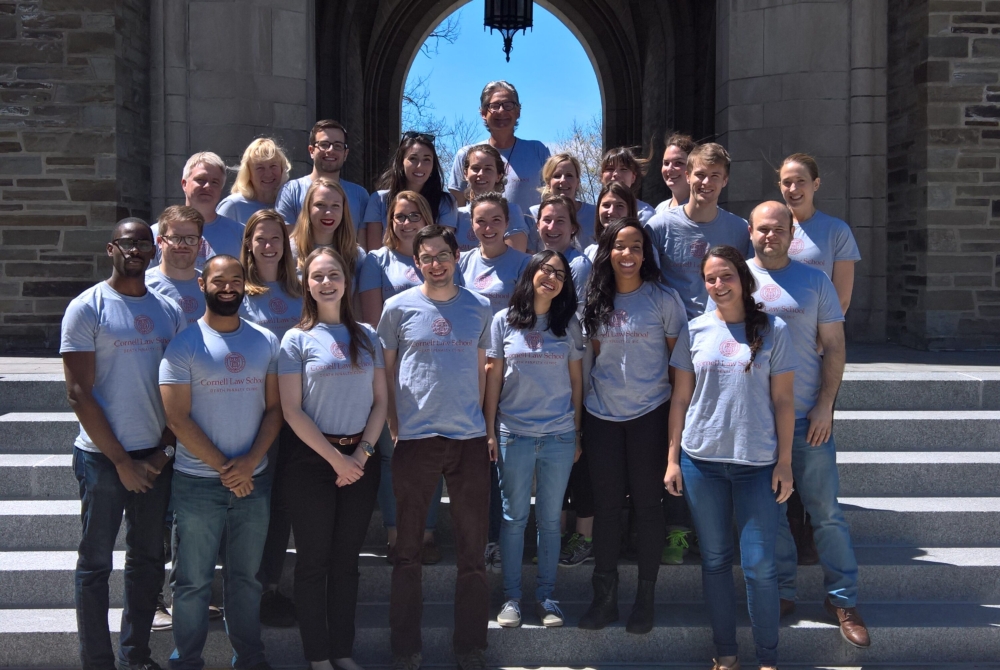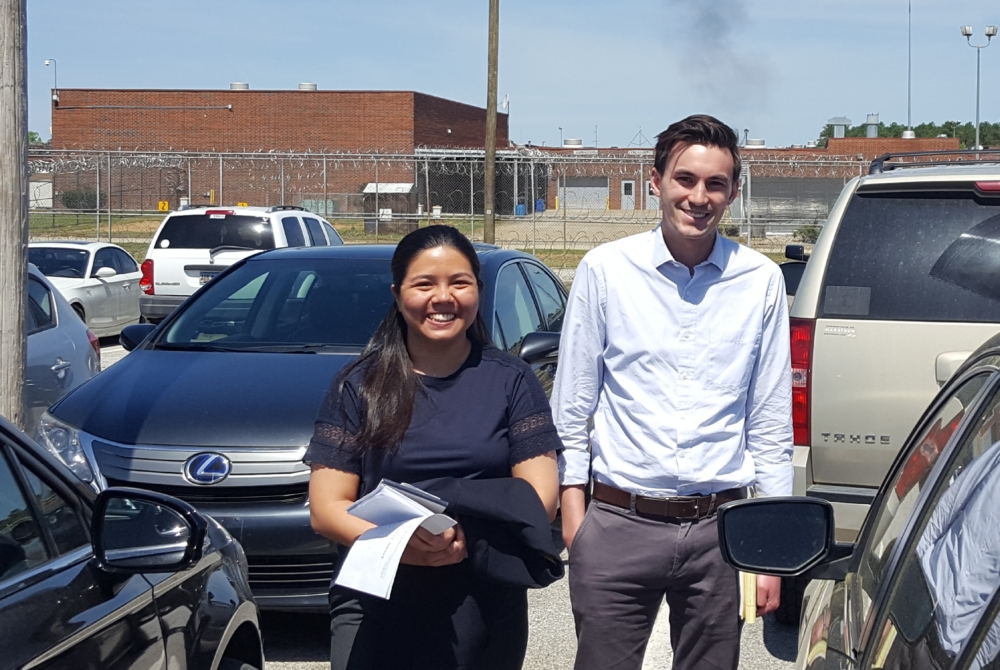This website uses cookies
We use cookies to ensure that we give you the best experience on our website. If you continue to use this site we will assume that you are happy with it.
The Juvenile Justice Clinic represents — and provides support to attorneys who represent — juveniles sentenced to life without parole and other draconian punishments. Many, but not all, of the clinics’ clients are incarcerated in South Carolina due to the Juvenile Justice Clinic’s close ties to Justice 360-SC, a non-profit that represents death-sentenced inmates and juveniles sentenced to life without parole or functionally equivalent sentences. Students who participate in this clinic will work closely with the clinic supervisor, Professor John Blume; Adjunct Professor and Clinical Psychologist Susan Knight; and staff attorneys at Justice 360-SC.

2017 Juvenile Justice and Capital Punishment Clinic students.

Clinic students Rohini Tashima and Andrew Guiang getting ready to interview clinic client Billy Kelly.
Students in the clinic will be part of a larger effort to provide high-quality legal services to juveniles in a variety of settings including pretrial motions, trials and sentencing hearings, direct appeals, state post-conviction review, and federal habeas corpus proceedings. The student experience will vary from semester to semester but common experiences include client and witness interviews, preparing appellate and amicus curiae briefs, preparing submissions and witnesses for parole hearings, challenging conditions of confinement for pretrial and imprisoned juveniles. Case selection and student assignments depend on both pedagogical factors and the litigation needs of clinic clients. All students are included in discussions regarding the necessary investigation, research, and strategy for the clinic’s cases. We effectively work as a law firm dedicated to juvenile justice.
The clinic always begins with a “boot camp” the weekend following the first week of classes, sometimes held in conjunction with students enrolled in the Capital Punishment Clinic. The purpose of the boot camp is to provide immersed instruction in substantive law and relevant skills to give students a basis to begin making an immediate contribution to their assigned cases. Students can expect to be exposed to the following topics and skills during the course of the semester:
The other component of student involvement in the clinic is supervised course work. Students will be assigned to a team and will work closely with clinic faculty and attorneys at Justice 360-SC. Student teams will meet with clinic faculty on (at least) a weekly basis. There will also be clinic “rounds” where students will hear about the work of the other clinic teams.
To apply for either course, interested students should submit a current CV, current law school transcript, and a brief statement of interest through the online application portal on the current student community site.
The Juvenile Justice Clinic was the driving force behind the litigation that culminated in Aiken v. Byars, 765 S.E. 2d 572 (S.C. 2014), a class action state habeas corpus petition proceeding that challenged the life without parole (LWOP) sentences of all juveniles sentenced to life without parole in South Carolina.
Relying on United States Supreme Court cases recognizing that children are constitutionally different for sentencing purposes, the South Carolina Supreme Court ruled that those sentences violated the Eighth Amendment’s ban on cruel and unusual punishment and that all juveniles sentenced to LWOP were entitled to new sentencing hearings. Since the state court’s decision, the clinic has represented some of the class members in their resentencing hearings and provided training programs and resource materials to other attorneys appointed to represent juveniles facing LWOP. The clinic also continues to work on other issues that have emerged in Aiken v. Byars’ aftermath including but not limited to: